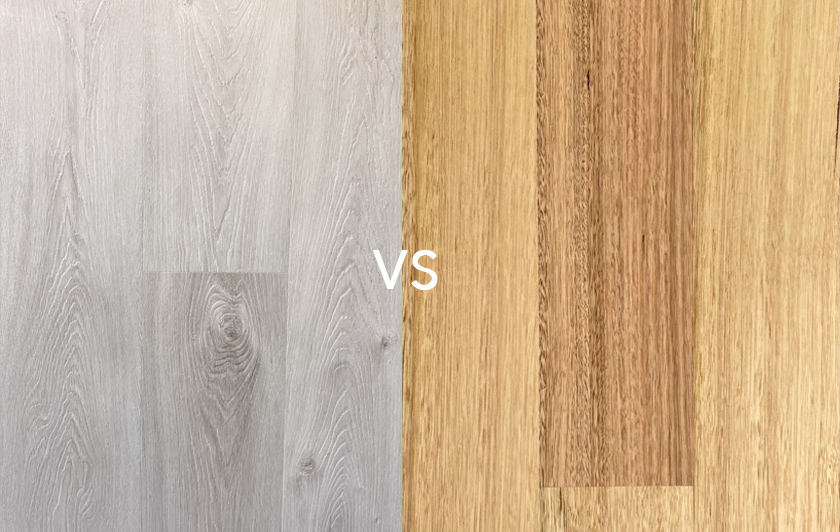We are in Melbourne, VIC
We are in Melbourne, VIC
2023-06-24 22:18:09

When it comes to selecting the perfect flooring for your home, the options can seem endless. Among the popular choices are hybrid flooring and timber flooring. Both options offer their own set of advantages and appeal to different homeowners. In this blog article, we will explore the question: Is hybrid flooring better than timber for your house? By examining the key factors that influence this decision, we aim to provide you with the necessary information to make an informed choice for your flooring needs.
One of the primary concerns when selecting flooring is its durability and longevity. Timber flooring has long been praised for its natural beauty and strength, but it is susceptible to scratches, fading, and moisture damage over time. Hybrid flooring, on the other hand, is designed to withstand high traffic areas and is highly resistant to wear and tear. With its multi-layer construction, hybrid flooring offers enhanced durability, making it an excellent choice for families with children or pets.
Maintenance plays a crucial role in the longevity and aesthetics of your flooring. Timber flooring requires regular sanding, polishing, and resealing to maintain its original luster. This maintenance can be time-consuming and costly. Hybrid flooring, however, is engineered to be low-maintenance, requiring only simple cleaning routines to keep it looking its best. Additionally, hybrid flooring often features a click-lock installation system, making it easier to install compared to timber flooring, which typically requires professional assistance.
Another significant consideration when choosing flooring is its resistance to moisture. Timber flooring can be susceptible to warping and damage when exposed to excessive moisture, such as in kitchens, bathrooms, or areas prone to spills. Hybrid flooring, with its waterproof and moisture-resistant properties, offers greater peace of mind in these areas. Its core materials, such as stone polymer composite (SPC) or wood plastic composite (WPC), make it highly stable and less prone to swelling or shrinking when exposed to moisture.
The visual appeal of your flooring is a crucial factor in creating the desired ambiance for your home. Timber flooring provides a classic, timeless beauty that can enhance the warmth and character of any space. It offers a natural elegance and a wide range of wood species, grains, and finishes to suit various interior styles. Hybrid flooring, on the other hand, offers a vast array of designs and patterns, including realistic wood and stone textures. This versatility allows homeowners to achieve their desired aesthetic while enjoying the benefits of a more resilient and cost-effective flooring solution.
Budget is an important aspect when choosing flooring materials. Timber flooring tends to be more expensive upfront due to the cost of sourcing and processing natural wood. Additionally, ongoing maintenance expenses should be factored into the overall cost. Hybrid flooring, although more affordable in terms of initial installation, provides excellent value for money due to its durability, low maintenance requirements, and long lifespan. It can offer substantial savings over time, making it a cost-effective choice for homeowners.
Choosing between hybrid flooring and timber flooring ultimately depends on your specific needs and preferences. While timber flooring offers timeless beauty and elegance, hybrid flooring presents a practical and versatile alternative that excels in durability, ease of maintenance, moisture resistance, and cost-effectiveness. By carefully considering these factors, you can make an informed decision that will not only enhance the aesthetic appeal of your home but also provide a durable and long-lasting flooring solution. Whether you opt for the natural charm of timber or the practical benefits of hybrid flooring, both options have their unique merits to suit your lifestyle and budget.